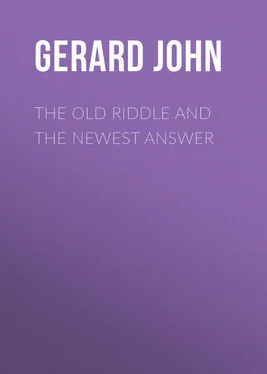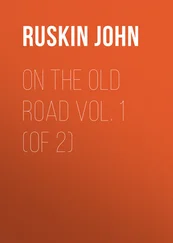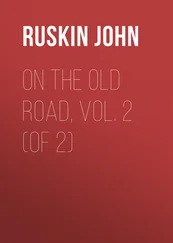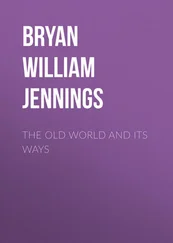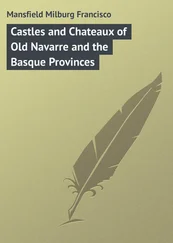John Gerard - The Old Riddle and the Newest Answer
Здесь есть возможность читать онлайн «John Gerard - The Old Riddle and the Newest Answer» — ознакомительный отрывок электронной книги совершенно бесплатно, а после прочтения отрывка купить полную версию. В некоторых случаях можно слушать аудио, скачать через торрент в формате fb2 и присутствует краткое содержание. Жанр: foreign_religion, foreign_antique, foreign_prose, на английском языке. Описание произведения, (предисловие) а так же отзывы посетителей доступны на портале библиотеки ЛибКат.
- Название:The Old Riddle and the Newest Answer
- Автор:
- Жанр:
- Год:неизвестен
- ISBN:нет данных
- Рейтинг книги:4 / 5. Голосов: 1
-
Избранное:Добавить в избранное
- Отзывы:
-
Ваша оценка:
- 80
- 1
- 2
- 3
- 4
- 5
The Old Riddle and the Newest Answer: краткое содержание, описание и аннотация
Предлагаем к чтению аннотацию, описание, краткое содержание или предисловие (зависит от того, что написал сам автор книги «The Old Riddle and the Newest Answer»). Если вы не нашли необходимую информацию о книге — напишите в комментариях, мы постараемся отыскать её.
The Old Riddle and the Newest Answer — читать онлайн ознакомительный отрывок
Ниже представлен текст книги, разбитый по страницам. Система сохранения места последней прочитанной страницы, позволяет с удобством читать онлайн бесплатно книгу «The Old Riddle and the Newest Answer», без необходимости каждый раз заново искать на чём Вы остановились. Поставьте закладку, и сможете в любой момент перейти на страницу, на которой закончили чтение.
Интервал:
Закладка:
So again Mr. Wallace tells us, 109 109 Darwinism , p. 475.
after speaking of the beginning of life as we have already heard,
The next stage is still more marvellous, still more completely beyond all possibility of explanation by matter, its laws and forces. It is the introduction of sensation or consciousness, constituting the fundamental distinction between the animal and vegetable kingdoms. Here all idea of mere complication of structure producing the result is out of the question. We feel it to be altogether preposterous to assume that at a certain stage of complexity of atomic constitution, and as a necessary result of that complexity alone, an ego should start into existence, a thing that feels , that is conscious of its own existence. Here we have the certainty that something new has arisen, a being whose nascent consciousness has gone on increasing in power and definiteness till it has culminated in the higher animals. No verbal explanation or attempt at explanation – such as the statement that life is the result of the molecular forces of the protoplasm, or that the whole existing organic universe from the amœba up to man was latent in the fire-mist from which the solar system was developed – can afford any mental satisfaction, or help us in any way to a solution of the mystery.
Unquestionably, there is no lack of speakers and writers who flatly contradict such views, and assert that animal life, equally with vegetable, could be, and must have been, naturally evolved from inorganic nature. The above testimonies, however, amply suffice for our present purpose, and with them we may be satisfied; for at least they make it plain that Science has found no evidence as to the origin of sensation and consciousness conclusive enough to compel belief. And where there is no scientific evidence even alleged, such as might require the training of a specialist for its due appreciation, one man of ordinary intelligence is as competent a judge as another, and scientific experts are on a level with the rest of us.
( b ) Rational thought and speech. What has just been said applies with equal force to this matter likewise. Unless Science have some positive evidence to bring, demonstrating how the gulf can be bridged which separates the intelligence of the most degraded races of men from the highest of the brutes, and how articulate language can spontaneously have arisen, which is the necessary appanage of reason, we have all equally the means of forming our conclusions on the subject.
That the gulf between man and the lower animals is here immense we have the evidence of Mr. Darwin.
No doubt [he writes] 110 110 Descent of Man , c. ii.
the difference is in this respect enormous, even if we compare the mind of one of the lowest savages, who has no words to express any number higher than four, and who uses no abstract terms for the commonest objects or affections, with that of the most highly organized ape. The difference would, no doubt, still remain immense, even if one of the highest apes had been improved and civilized as much as a dog has been in comparison with its parent form, the wolf or jackal. The Fuegians rank amongst the lowest barbarians; but I was continually struck with surprise how closely the three natives on board H.M.S. Beagle , who had lived some years in England and could talk a little English, resembled us in disposition and in most of our mental faculties.
Mr. Darwin goes on to argue, however, that the difference between man and beast is one of degree only and not of kind; that this can be "clearly shewn"; and that there is unquestionably a much wider interval in mental power between one of the lowest fishes, as a lamprey or lancelet, and one of the higher apes, than between an ape and a man; yet this immense interval is filled up by numberless gradations, from which he concludes that by a like series of steps, of which, however, no trace is left, our progenitors have been able to mount from the simian to the human level.
Clear however as Mr. Darwin pronounces the evidence to be, it is very far from being so considered by other eminent naturalists. So convinced an Evolutionist as Mr. Mivart, for example, declared on various occasions that his reason abundantly sufficed to convince him that there was a wider break in nature between man and the highest ape, than between the highest ape and an oyster or even a mushroom.
It is evident that the evidence which permits judgments so diverse as these cannot be said conclusively to prove the former existence of a bridge every vestige of which has, by the acknowledgment of all parties, entirely disappeared. We are therefore left to determine for ourselves, whether the powers of our own mind, as each knows them in himself, are of a totally different nature from those of dogs and horses, and chimpanzees such as the late lamented "Consul," or whether we are superior only in degree, as a sheep-dog is more intelligent than a sheep, or a fox than a goose.
If in any respect such an enquiry can be made definite and therefore profitable, it is clearly in regard of Language. This, as said above, is an essential adjunct of reason such as ours, and on the other hand it forms the plainest boundary between the domain of the human race and that of the brutes. It is, says Professor Max Müller, our Rubicon on the hither side of which men alone are found. Given reason such as ours, whatever mode of communication might be open to them, we cannot suppose its possessors failing to establish a medium of intercourse. In existing conditions, man can make an alphabet out of the clicks of a needle or the flashes of a mirror, and if his vocal organs were no better than those of a baboon, we cannot imagine him content generation after generation with inarticulate howls and yells. But this is just the case of the animals. They are never found to make the smallest progress in the direction of a code of signals. Dogs indeed, as Mr. Darwin says, 111 111 Ibid. 54.
having developed in captivity the new art of barking, have further learnt to vary this accomplishment according to the circumstances that provoke it, and have distinct tones to express the diversity of their feelings, as when hunting, or angry, or setting out for a walk, or shut up in a kennel or out of a house. Some dogs, he might have added, refine still further, and will betray by their style of bark not only that they are hunting something, but what it is that they have come upon, whether a rabbit, a cat, or a hedgehog. But, as the Chevalier Bunsen observes, 112 112 In his paper read before the British Association at Oxford in 1847.
and his observation includes such manifestations as the above:
Animal sounds are the echoes of blind instincts within, or of the phenomena of the outward world, uttered by suffering or satisfied animal nature, and in all cases resulting from mere passiveness.
By rational language, on the other hand, is signified, to quote Mr. Mivart: 113 113 Lessons from Nature , p. 89.
The external manifestation, whether by sound or gesture, of general conceptions: – not emotional expressions or the manifestations of sensible impressions, but enunciations of distinct judgments as to "the what," "the how," and "the why."
Consequently, as Bunsen declares:
The theories about the origin of language have followed those about the origin of thought, and have shared their fate. The materialists have never been able to show the possibility of the first step. They attempt to veil their inability by the easy but fruitless assumption of an infinite space of time, destined to explain the gradual development of animals into men; as if millions of years could supply the want of the agent necessary for the first movement, for the first step in the line of progress! No numbers can effect a logical impossibility. How indeed could reason spring out of a state which is destitute of reason? How can speech, the expression of thought, develop itself in a year or in millions of years, out of unarticulated sounds which express feelings of pleasure, pain, and appetite? The common-sense of mankind will always shrink from such theories.
Читать дальшеИнтервал:
Закладка:
Похожие книги на «The Old Riddle and the Newest Answer»
Представляем Вашему вниманию похожие книги на «The Old Riddle and the Newest Answer» списком для выбора. Мы отобрали схожую по названию и смыслу литературу в надежде предоставить читателям больше вариантов отыскать новые, интересные, ещё непрочитанные произведения.
Обсуждение, отзывы о книге «The Old Riddle and the Newest Answer» и просто собственные мнения читателей. Оставьте ваши комментарии, напишите, что Вы думаете о произведении, его смысле или главных героях. Укажите что конкретно понравилось, а что нет, и почему Вы так считаете.
